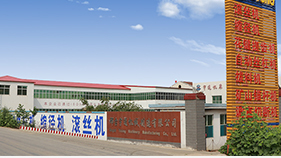
-
 Afrikaans
Afrikaans -
 Albanian
Albanian -
 Amharic
Amharic -
 Arabic
Arabic -
 Armenian
Armenian -
 Azerbaijani
Azerbaijani -
 Basque
Basque -
 Belarusian
Belarusian -
 Bengali
Bengali -
 Bosnian
Bosnian -
 Bulgarian
Bulgarian -
 Catalan
Catalan -
 Cebuano
Cebuano -
 Corsican
Corsican -
 Croatian
Croatian -
 Czech
Czech -
 Danish
Danish -
 Dutch
Dutch -
 English
English -
 Esperanto
Esperanto -
 Estonian
Estonian -
 Finnish
Finnish -
 French
French -
 Frisian
Frisian -
 Galician
Galician -
 Georgian
Georgian -
 German
German -
 Greek
Greek -
 Gujarati
Gujarati -
 Haitian Creole
Haitian Creole -
 hausa
hausa -
 hawaiian
hawaiian -
 Hebrew
Hebrew -
 Hindi
Hindi -
 Miao
Miao -
 Hungarian
Hungarian -
 Icelandic
Icelandic -
 igbo
igbo -
 Indonesian
Indonesian -
 irish
irish -
 Italian
Italian -
 Japanese
Japanese -
 Javanese
Javanese -
 Kannada
Kannada -
 kazakh
kazakh -
 Khmer
Khmer -
 Rwandese
Rwandese -
 Korean
Korean -
 Kurdish
Kurdish -
 Kyrgyz
Kyrgyz -
 Lao
Lao -
 Latin
Latin -
 Latvian
Latvian -
 Lithuanian
Lithuanian -
 Luxembourgish
Luxembourgish -
 Macedonian
Macedonian -
 Malgashi
Malgashi -
 Malay
Malay -
 Malayalam
Malayalam -
 Maltese
Maltese -
 Maori
Maori -
 Marathi
Marathi -
 Mongolian
Mongolian -
 Myanmar
Myanmar -
 Nepali
Nepali -
 Norwegian
Norwegian -
 Norwegian
Norwegian -
 Occitan
Occitan -
 Pashto
Pashto -
 Persian
Persian -
 Polish
Polish -
 Portuguese
Portuguese -
 Punjabi
Punjabi -
 Romanian
Romanian -
 Russian
Russian -
 Samoan
Samoan -
 Scottish Gaelic
Scottish Gaelic -
 Serbian
Serbian -
 Sesotho
Sesotho -
 Shona
Shona -
 Sindhi
Sindhi -
 Sinhala
Sinhala -
 Slovak
Slovak -
 Slovenian
Slovenian -
 Somali
Somali -
 Spanish
Spanish -
 Sundanese
Sundanese -
 Swahili
Swahili -
 Swedish
Swedish -
 Tagalog
Tagalog -
 Tajik
Tajik -
 Tamil
Tamil -
 Tatar
Tatar -
 Telugu
Telugu -
 Thai
Thai -
 Turkish
Turkish -
 Turkmen
Turkmen -
 Ukrainian
Ukrainian -
 Urdu
Urdu -
 Uighur
Uighur -
 Uzbek
Uzbek -
 Vietnamese
Vietnamese -
 Welsh
Welsh -
 Bantu
Bantu -
 Yiddish
Yiddish -
 Yoruba
Yoruba -
 Zulu
Zulu
rebar thread rolling machine service
The Importance of Rebar Thread Rolling Machines in Construction
In the construction industry, the integrity and strength of concrete structures are paramount. One essential component that contributes to this strength is reinforcing bars, commonly known as rebar. To enhance the bonding of rebar with concrete and to facilitate certain construction processes, rebar thread rolling machines have become invaluable tools. This article delves into the significance of these machines, their functions, and the services associated with them.
What is a Rebar Thread Rolling Machine?
Rebar thread rolling machines are specialized equipment used to create threads on the ends of rebar. These threads are critical for various reasons, including allowing for the secure connection of rebar sections, anchoring rods, and the installation of prefabricated components. The threading process involves cold rolling, which means the metal is shaped without the application of heat. This procedure preserves the strength of the steel while efficiently creating the desired thread profile.
How It Works
The operation of a rebar thread rolling machine is relatively straightforward. The machine consists of rollers that shape the rebar as it is fed through the equipment. The process utilizes a set of dies that imprint the thread pattern onto the rebar, thereby ensuring precision and consistency. As the rebar is rolled, it maintains its structural integrity while reaching the necessary specifications for use in construction projects.
The thread-rolling process can vary based on the machine’s design and the specific requirements of the project. Different machines may accommodate different sizes and types of rebar, making them versatile tools in a contractor's arsenal.
Benefits of Using Thread Rolling Machines
1. Improved Bonding By creating threads, the surface area of the rebar increases, enhancing the bonding between the rebar and the concrete. This results in stronger structures capable of withstanding greater loads.
rebar thread rolling machine service

2. Cost Efficiency Thread rolling is a faster and more efficient process compared to other methods of achieving threaded rebar. It reduces labor costs and minimizes material waste, making it a cost-effective solution for construction companies.
3. Strength Retention Unlike heat-based methods, cold rolling preserves the tensile strength of the steel, ensuring that the rebar can perform optimally without becoming brittle or weakened.
4. Versatility Rebar thread rolling machines can be adjusted to accommodate various sizes and types of rebar, giving construction companies the flexibility they need for different projects.
Maintenance and Service Considerations
To ensure the longevity and efficiency of rebar thread rolling machines, regular maintenance is crucial. Operators should adhere to a routine that includes inspecting the machine for wear and tear, lubricating moving parts, and checking the alignment of dies. Proper maintenance not only prevents breakdowns but also ensures that the threading process remains accurate and efficient.
Additionally, it is important for companies to engage with service providers who specialize in rebar thread rolling machines. These services can include scheduled maintenance, part replacements, and technical support. Having access to expert knowledge and experience can greatly increase the operational longevity of the machines and overall productivity on construction sites.
Conclusion
In summary, rebar thread rolling machines play a vital role in the construction industry. By enhancing the bond between rebar and concrete, they contribute to the durability and strength of structures. The efficiencies gained through the use of these machines, along with their adaptability and the preservation of material properties, make them indispensable in modern construction. Regular maintenance and specialized services are essential to keep these machines functioning at their best, ensuring that construction projects can proceed smoothly and efficiently. As the construction sector continues to evolve, the significance of rebar thread rolling machines will undoubtedly remain strong, supporting the development of safe and robust infrastructures.
